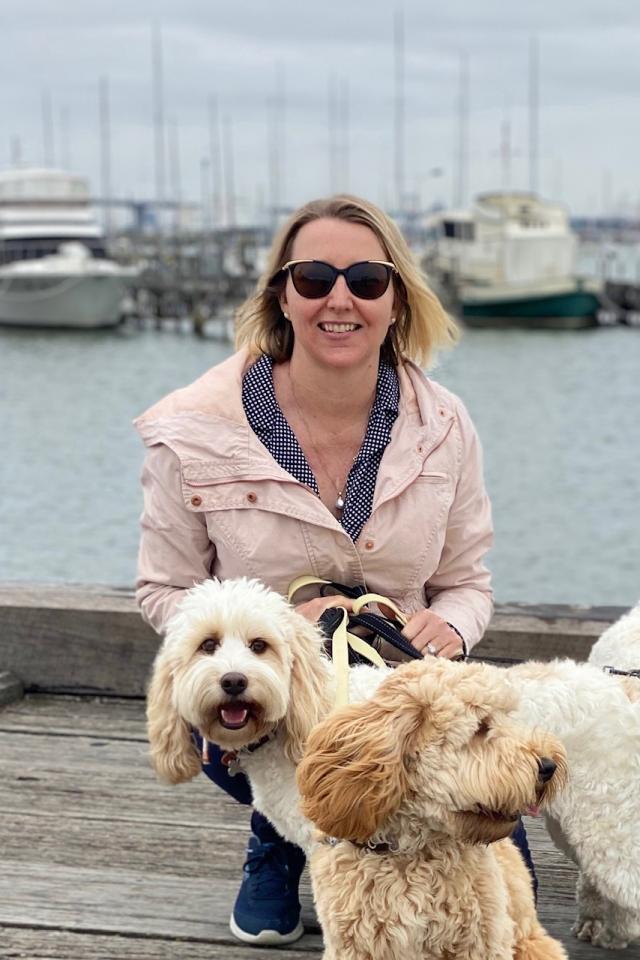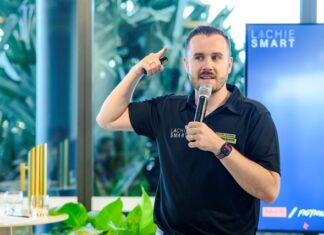Seriously ill and in heart failure Noosa’s Leigh Bell lived a terrifying day-to-day existence on the transplant list wondering if a heart would become available to give her a future, before receiving a call about a year ago that it has.
“It was unbelievably emotional – getting the call they have a heart for you when you don’t know if you’ll get one at all,” she said.
“It was a mix of grief and joy. It was grief for the person dying and their family. It was a massive relief.
“Every second of every day you wait for the call to come.”
“Make your way to the Prince Charles Hospital, we think we have a heart for you,” she was told, knowing that meant she had been identified as a positive cross-match for the heart to be offered by someone who had elected, on their death, to donate their organs to give life to others.
After a lifetime living with the genetic disease, Hypertrophic Cardiomyopathy, and undergoing numerous heart surgeries Leigh went into heart failure eight years ago which forced her to give up work.
For two years she was seriously ill with the disease before being regarded as sick enough to be placed on the transplant list.
During the pandemic the fear, in her weakened condition, of contracting Covid19 further compounded the situation.
Leigh spent 11 nights in ICU following her heart transplant and since the initial surgery has required further hospital procedures.
Her need to take medication to prevent her body rejecting the donor organ has lowered her immunity which means she and her husband are currently living in ongoing lockdown.
Despite ongoing issues her life has become “so much better”
“I have pink fingers and warm feet,” she said. “My husband says: honey, you’re warm. She now has the energy to walk her dogs and the couple has a boat on which they make regular escapes.
“Just to be able to make plans, that’s the benefit – to have a future,” she said.
Born in Cooroy to a large family Leigh is one of several members of her extended family to have inherited Hypertrophic Cardiomyopathy.
She said the disease that affects about one in 300 people is “not terribly uncommon” but its impact can range from sufferers being asymptomatic or only mildly affected to needing a transplant, and some people are unaware they have it.
“The first symptom can be cardiac arrest resulting in sudden death,” she said. Hypertrophic Cardiomyopathy is an issue strongly considered in the sudden death of an athlete.
Fortunately only 3-5 per cent of people progress to needing a transplant and Leigh is one of those.
While at primary school it was constant tiredness and breathlessness that led to Leigh’s diagnosis.
At the age of 17 years, she had open heart surgery to improve her heart function and at 21 years she had her first defibrillator implanted.
Since then she has had four more implanted defibrillators and multiple interventions.
Despite her illness or perhaps because of it Leigh threw herself into a corporate career. She has worked across the world for large firms including BP and Bluescope Steel.
“I knew I needed to look after myself. I had to be financially secure,” she said.
To honour the gift of life she has been given Leigh is giving back.
She has been voted on to the executive committee of the Cardiomyopathy Association of Australia and become a DonateLife Queensland champion.
She has become the Queensland contact person for people wanting help or support around organ donation and she wants to highlight DonateLife Week.
An annual public awareness initiative run by the Australian Government’s Organ and Tissue Authority and supported by DonateLife aims to encourage Australians to register for organ and tissue donation and during DonateLife Week from 24-31 July a Great Registration Race hopes to attract 100,000 registrations.
There are 1750 people on the waitlist for a donation and about 13,000 people on dialysis, some of whom would benefit from a kidney donation.
There are about seven million registered organ and tissue donors in Australia but only about two per cent of people who die in hospital have the opportunity to become an organ donor.
Registering is easy and anyone over 16 years can do it.
One organ donor can save up to seven lives and it doesn’t matter your medical history, your lifestyle, what country you’re from or how healthy you are – you can still register as an organ and tissue donor.
Sign up at donatelife.gov.au or through your Medicare app.








